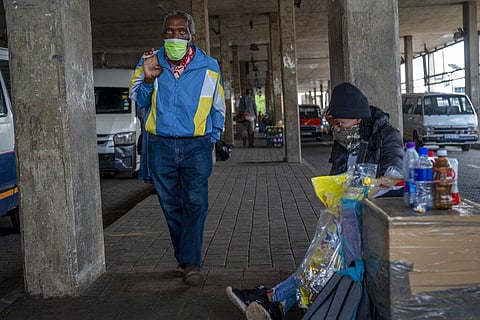

JOHANNESBURG: South Africa's sudden spike in Covid infections reported on Sunday was due to a technical glitch and the actual number of cases was less than half the reported figure of over 37,000, the country's top body for communicable diseases has confirmed.
The massive jump to 37,875 new Covid cases on Sunday from the previous day's figure of 17,154, followed by 13,992 cases on Monday caused concern among both the public and scientists.
In a press statement on Monday, the National Institute of Communicable Diseases (NICD) said the reported overnight Covid-19 infections of over 37,000 was actually less than half that figure.
On Sunday, the NICD reported 18,035 Covid cases, however, over 19,000 earlier cases got added to the figure due to a technical glitch, it said.
The National Health Laboratory Service (NHLS) also blamed the confusion on technical issues, which caused statistics coming in from various sources earlier all being added together with Sunday's figure.
"Technical problems at state laboratories led to delays in the release of results of coronavirus tests, as well as a dump of close to 19,000 cases into the National Institute for Communicable Diseases' system on Sunday," the NICD statement said.
"The institute relies on test reports from both private and public laboratories to generate daily COVID-19 statistics, including the number of new cases, new tests, and percent positivity rate."
"The NICD was informed in the previous week that information technology challenges had been experienced by public sector laboratories, which have resulted in reporting delays. Some COVID-19 surveillance data may take longer to reflect on the national line list," it said, adding that this caused over 19,000 earlier cases to be added to Sunday's figure.
The NICD said it is committed to transparent reporting and will continue to update COVID-19 surveillance databases retrospectively as the impacted public laboratories remedy the existing IT difficulties.
"This will result in retrospective data being processed onto the line list, increasing the cumulative number of tests," it said.